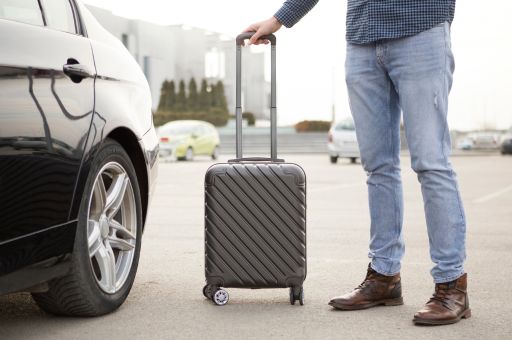Vicent Marí thanked the technicians of the Consell de Eivissa for their work and the political parties for their ability to understand a law that tackles an ‘unsustainable’ situation.
The Parliament of the Balearic Islands this morning approved the parliamentary initiative promoted by the Consell de Eivissa to control the influx of vehicles on the island of Eivissa, which, according to President Vicent Marí, aims to improve the environment and the quality of life of the population, while preserving the image and sustainability of the island of Eivissa’ and does so based on principles of efficiency, proportionality and non-discrimination.
TDB keeps you informed. Follow us on Facebook, Twitter and Instagram
Parliamentary initiative to control the influx of vehicles on the island of Ibiza approved
President Vicent Marí wanted to ‘thank and highlight’ the work carried out by the technicians and political representatives of the Consell Insular de Eivissa, ‘which has been key to reaching this point’, a point where ‘an effective regulation has been approved, one that lasts and achieves the objectives set’. The president also had words of thanks for the political groups in Parliament, who ‘have shown a clear and firm will to negotiate and reach consensus’, as is reflected in the fact that of the 103 amendments presented by the different groups, 93% have been approved, agreed upon or withdrawn.
Current situation
The president justified the necessary application of this law with data from 2023 where, not counting traffic from Formentera, more than 150,000 vehicles disembarked on the island of Eivissa, which is 35% more than in 2019. A figure that if added to the vehicles already residing in Eivissa (1,037 vehicles per 1,000 inhabitants) generates a pressure that ‘is unsustainable’, said Vicent Marí.
Measures of the law
The law approved today ‘seeks a balance between tourism and environmental and territorial sustainability’. It is regulated in five chapters, in which the objectives and application measures are set out, as well as a system of sanctions that can reach up to 30,000 euros and inspections to ensure its effectiveness. It is emphasised that sanctions will not only be applied at the entrance but also during the stay, day by day.
Furthermore, this law will allow the Consell Insular to have a fixed and real photograph of how many vehicles are on the island at all times, which will allow it to define mobility, territorial and tourism policies based on real data. Furthermore, this data will be available to institutions and organisations that will be able to use it to carry out studies and proposals in favour of our island.
Some important points are the regulation of the name of vehicles for hire, taking into account the requests of the sector, without criminalising this activity and seeking a balance between supply and demand, becoming a minimum quota of electric vehicles within this modality and improving the public transport service, thanks to the new concessions that are being awarded at the moment.
Vehicle access is also limited to areas and spaces of the block of high natural, heritage and landscape value, to guarantee their preservation and management, and in this sense, the prohibition of parking on all rural land gains importance, as well as the arrival and stay of caravans, which will be prohibited for those who do not have a reservation in an authorised space.
It should also be noted that the shipping companies will have to provide data and inform their users about these regulations and the collection of the fees arising from their application. These fees will generate a sustainability fund, which will be managed by a newly created consortium and will serve to change the island’s mobility paradigm.
In short, the president concluded that ‘this proposal is a historic step towards achieving coexistence and well-being between residents and tourism, in a context of social and environmental issues that must be addressed and managed. Always from moderation, sanity and dialogue, if we do not want this success that we are all celebrating today to turn into failure’, concluded Vicent Marí.
